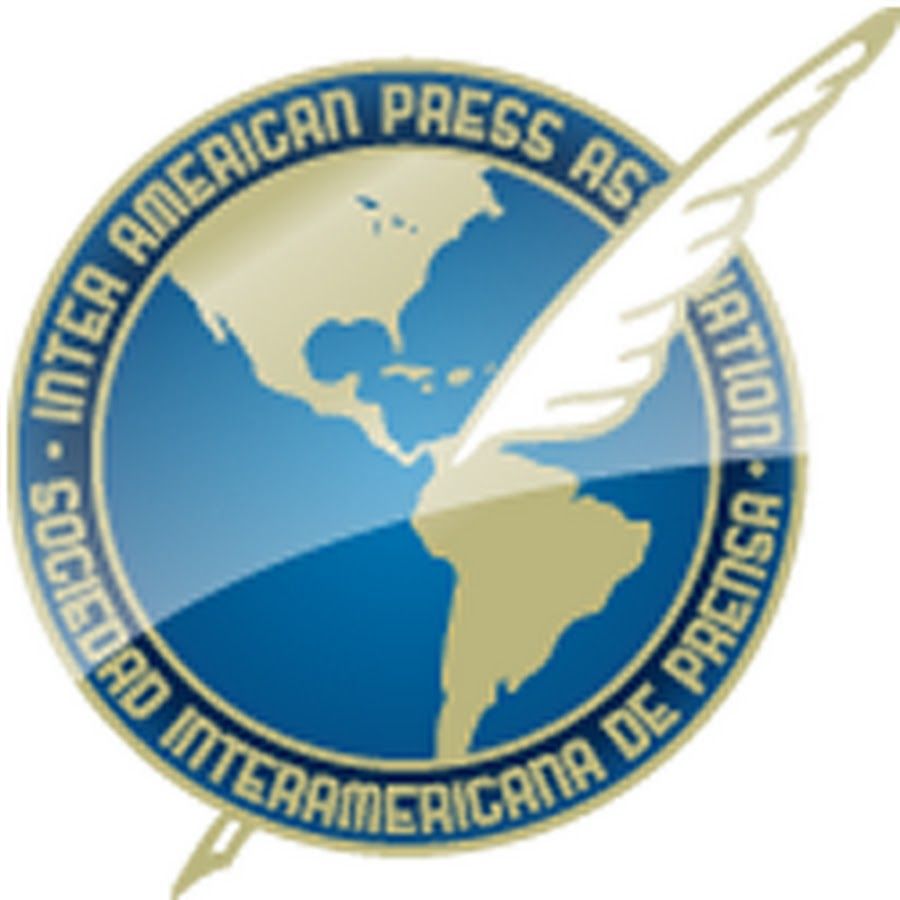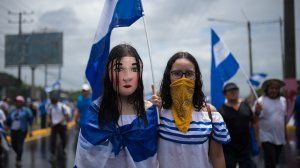Unceasingly there have been threats to journalists and news media, especially in areas of the country such as the Atlantic Coast and some regions of Antioquia. At the same time, legal actions are being used as a means of intimidation or censorship, while the legislative branch of government continues to introduce bills that interfere with freedom of expression.
Since the initiation of peace talks between the government and the FARC guerrilla movement in Havana, Cuba, there has been an increase in warlike actions in the Cauca area and in the provinces located in the east of the country, such as Norte de Santander, Arauca, Guaviare and Putumayo, which is creating a situation of risk for journalists.
Since 2012 Colombia has a freedom of expression and access to public information index. It is a quantitative tool developed by the Antonio Nariño Project (PAN), an inter-institutional alliance for the promotion of freedom of expression and access to information. Its members are the National Association of Newspapers of Colombia (Andiarios), the Foundation for Press Freedom (Flip), New Ibero-American Journalism Foundation (FNPI) and Friedrich Ebert Foundation in Colombia (Fescol).
Through 42 variables this index provides a diagnosis of difficulties to reporting, differentiating between themes and the 32 regions of the country. It has four dimensions access to information, the environment for freedom of expression, direct attacks, and impunity. The structure of the index divides the results in these four areas of review and each one receives a rating of from 0 to 100 100 being the top classification.
In the first edition of the PAN index, which looked at access to information, direct attacks, impunity and the environment for freedom of expression, Colombia obtained 50 points, on a scale of 0 to 100. The results of the impunity category was a factor that had a considerable impact on the average, as it had the lowest rating 12 points. Access to information obtained 38 points. Direct attacks was the highest, with 74.8 points, due to the change in the kind of attacks in country, going from killing journalists to frightening them through non-lethal attacks or with libel suits, among other methods.
In this year 2013 six cases of the murder of journalists in 1993 became subject to statutes of limitation. Among these that of the murder of the editor of the Cúcuta newspaper La Opinión, Eustorgio Colmenares Baptista, killed on March 12 and to whom the IAPA awarded its Press Freedom Prize posthumously in October that year.
The investigation did not come up with any relevant results regarding the perpetrators nor masterminds, despite the fact that the subversive group ELN claimed responsibility for the crime in a press release after the murder. Two people charged with having been the perpetrators were acquitted in January 2001.
The crime continues to go completely unpunished after 20 years, like 87% of the 139 murders of journalists committed in Colombia since 1977, according to figures provided by the Flip.
The Colombian Attorney General has been asked to declare the matter to be a crime against humanity so as to prevent its being finally closed.
In mid-February accusatorial and defense hearings concluded in the case of the murder of Orlando Sierra, managing editor of the Manizales newspaper La Patria, committed in 2002. On December 10, the Pereira Circuit Criminal Court ordered the release, on the basis of a statute of limitations, of Henry Calle Obando, one of those charged with the murder, who nevertheless has continued being linked to it.
Among the accused is Ferney Tapasco, for being the alleged mastermind of the murder. Also charged are Henry Calle Obando and the brothers Gabriel Jaime, Jorge Hernando and Favio López Escobar, who used to work with the liberal party leader.
The case is awaiting judgment.
For a number of years there has been an increase in threats to journalists and media. The authorities take note of them, reinforce protection systems in some of the cases, but in general there is no conclusion as to who carried them out , whether paramilitary gangs, drug traffickers, or those engaged in subversion or in common crime.
It is also notorious that there has been an increase in legal actions, sometimes on the part of officials in various branches of government, with the aim of seeking to intimidate or censor media, reporters or columnists. An example of this is the case of Luis Agustín González, who was convicted over an op-ed piece and whose conviction is on appeal in the Supreme Court. At the end of February, Colombian Comptroller General Sandra Morelli, in the name of her son and some neighbors, filed a writ for protection of fundamental rights against reporter Iván Serrano and the editor of Noticias Uno, Cecilia Orozco, who in addition as a columnist for the newspaper El Espectador had reported on a formal complaint filed by a group of neighbors about excessive noise coming from the senior officials house. Among other petitions in Morellis legal action is a call to stop El Espectador and Noticias Uno from publishing information about this in the future. The case will be heard by a Bogotá circuit civil court judge.
Flip at the beginning of the year produced a report on the state of this in Colombia, titled From Bullets to Legal Proceedings, which relates the increase in legal actions against reporters, columnists and media as a way of intimidating or censoring, often led by public officials or by private persons who voluntarily get involved in matters of general interest.
In Colombia, according to Flip, 139 journalists have been murdered since 1977, of which only 17 cases have ended with convictions. There are 67 journalists receiving special protection by the government, a task on which is being spent approximately 13 million pesos a year. There are 55 cases without official information on the state of the investigations.
In January, a ruling by the Constitutional Court was that it is legitimate for the government to place advertising on online media rather than print media.
The Constitutional Court held that the government can eliminate the requirement to turn to print media to advertise state contracts, as envisioned in various articles of a law on the subject. For the court to replace that practice with the simple publication in online media is not contrary to the Political Charter. The court declared this to be covered by Articles 59, 60, 61, 62, 218, 222, 223 and 224 of Decree-Law 019 of 2012, as it considers that they are in line with extraordinary attributions provided for under Law 1474 of 2011. The Constitutional Court understands that it is the duty of the law to regulate the activities of the administration in conformity with technological advances, so long as that is not detrimental to the rights of those administered, the Court held at the same time that it said that this is a measure that makes more efficient and less costly the duty of the institutions to make the public aware of its contractual processes.
The Constitutional Court declared as not applicable Law 1520 of 2012, which contained Colombias commitments in terms of copyright acquired by virtue of the Commercial Trade Agreement negotiated with the United States. That law set penalties of up to eight years imprisonment for the export of reproductions of protected works without the approval of the owners of rights to them, and extended from 50 to 70 years the protection of rights of ownership of the works and reduced from 50% to 30% the percentages of national television production during weekends and holidays.
With two votes in favor and five against the Constitutional Court repealed Articles 13 and 14 of Law 1520 of 2012, also known the Lleras Law, because it restricted access to Web content, limiting freedom of expression.
This decision came after a lawsuit by Senator Jorge Robledo of the Polo Democrático party, who considers that those two articles restrict unfettered and free-of-charge access to information on the Internet and violate, without justification, the rights of Internet users to divulge and access Web content. In addition, the senator said this law benefitted those companies that buy copyrights of authors and artists, violating the rights of those who create the works.
Before the Congress are several bills that seek to impose on newspapers and other media requirements and prohibitions concerning the dissemination of news and advertising content.
Bill No. 167 In which the Electoral Code is issued and other dispositions would establish restrictions concerning the dissemination of information, with the publication of results of electoral polls and propaganda.
The initiative would set, for all news media, the obligation to contribute to the strengthening of democracy and ensuring during the election campaign pluralism, informational balance, impartiality and equal treatment in the dissemination of the proposals of the parties, movements, political groups and candidates or lists that participate in the campaigns. This requirement, which currently only applies to the media that use the radio-electric spectrum (a state asset) and not to newspapers (which do not use any state asset), is in this regard unconstitutional and restricts editorial autonomy.
In its turn Article 133 prohibits opinion programs that promote or support candidates, parties or political movements or a determined choice in mechanisms of citizen participation; it also establishes that during the election campaign the media may only provide information on the number of people that cast their vote, point out the identification of the corresponding voting tables, and says that after voting ends the news media may only give information about the election results coming from electoral authorities.
It reduces to two months the term during which electoral propaganda may be carried in the media, including newspapers. This term today is 60 business days, which is the equivalent of almost three months.
Article 67 prohibits the divulging of electoral polls or opinion surveys during eight days prior to the voting day. Currently this limit only applies to the week before presidential elections.
Bill No. 73/12 in the Senate seeks to impose on the news media an obligation to disseminate information concerning the rights and freedoms of adults, and their social well-being and physical and mental health and prohibits them from publishing reports discriminating against adults.
Bill No. 052 of 2012 in the Chamber would establish a system of monitoring media in each province of Colombia, with the aim of preventing that reports, patterns or commercial campaigns contribute to or favor any kind of discrimination or mistreatment of children and women, with the aim of bringing about the eradication of such events.
Bill No. 53 of 2012 in the Senate would impose on the media an obligation to become engaged with the process of formulation, development and implementation of the national parks public policy, ensuring a full and effective dissemination and promotion of its objectives, strategies, plans and programs, at both the national and local levels.
Bill No. 246 of 2012 in the Senate, 145 of 2012 in the Chamber, would establish that there should be published in the media appreciation of sports efforts in womens soccer, giving them recognition and providing them with a stimulus.
Bill No. 69/12 in the Senate would prohibit television, print, radio, virtual and online news media operating in Colombia from providing classified advertising services, conducting propaganda, presenting programs, competitions or offering services where there is an explicit or implicit reference to sexual services and those that have a direct relationship, under penalty of being fined with the equivalent of ten (10) to one hundred (100) current minimum legal monthly salaries by the Ministry of Information and Communication Technologies, and the offending matter being withdrawn or censored.
This bill in addition would impose on the media an obligation to conduct campaigns of prevention or impact of the scourge of prostitution.
Bill No. 202 of 2012 in the Chamber, which would issue the Police Code, would prohibit engagement in the following activities, considering them to be harmful to the integrity of children and adolescents: Allow or encourage boys, girls and adolescents to use telecommunications, publications and documents to have access to pornographic material or that which is classified for those over the age of 18 and to facilitate, distribute, offer, commercialize, lend or rent to boys, girls or adolescents pornographic material or that with content classified for those over the age of 18. This regulation would enable the police authorities to characterize as content for those over the age of 18 some newspapers and magazines, that is to say it would empower them to practice censorship of content. The bill for the Code also envisions strong restrictions on the use of public spaces that could limit the distribution and sale of newspapers and ban advertising of any kind (including classified ads) alluding to prostitution.
Other bills are under way that are raising concern over their negative effects for newspapers and/or the work of the press:
Bill No. 18 of 2012 in the Senate would eliminate the special statute of limitations of 30 years, set in Law No. 1426 of 2010, in cases of murder, torture, forced disappearance, when the victim is a journalist, a member of a labor union or a human rights defender. In October there was a proposal to throw out this bill, but it has not yet been voted on.
Bill No. 156 of 2011 in the Senate contains dispositions regarding access to pubic information, but some of them are raising concern for the work of the press, such as censorship of information, documents, databases and contracts concerning national defense and security, public order and international relations.
Several bills are being debated concerning third-party roles in services, sales in public places and transportation of merchandise that could affect newspapers distribution and sales activities.
Among positive aspects during the legislative session that ended in December worth mentioning is amendment to Article 481 of the Tax Statute by virtue of which newspapers were made exempt from payment of Valued Added Tax and the throwing out of Article 7 of Bill No. 254 of 2012 in the Senate which would have banned advertising of alcoholic beverages during an alcohol-free day.
Other major developments during the period:
Journalist Jineth Bedoya with the legal section of El Tiempo in January received a new warning to stop publishing her denunciations.
On January 26, the reporting teams of Teleantioquia, Telemedellín, Noticas RCN and Caracol Noticias were threatened when they were covering the burial of a young victim of violence in the Villa Turbay neighborhood of the city of Medellín. During the service several men approached them to demand that they stop taping. The reporters left the scene.
The following day, a similar situation arose in the Los Alcázares neighborhood in Commune 8, where threats were made to a reporter from Noticias Telantioquia by an individual who warned him to leave the place. If you come back here you know what will happen to you, he was told. The TV station decided to stop covering news about the Communes 8 and 13 regarding public order until there were sufficient guarantees.
On January 29, in an unusual move a person bought up all the copies of the newspaper El Meridiano de Sucre, sent to the town of Majagual, Costa Atlántica province. The object of the action was that a denunciation that the newspaper published that day about the transportation of construction materials in an ambulance would not get to be known. The denunciation had been made by a member of the local town council who provided photos.
Sucre journalist Guillermo Quiroz died in a clinic in Sincelejo eight days after a confused incident on November 20 while he was covering a local protest against the Pacific Rubiales oil company. He was hospitalized as a result of injuries to his head, sustained when he fell from a vehicle in which uniformed police were taking him to the town of Corozal after having immobilized his motorcycle for his not having the required documents.
The police version is that Quiroz, 31, who worked for the television channel Notisabanas and the newspaper El Meridiano, attacked one of the police officers and jumped out of the vehicle, which resulted in serous injuries that later caused his death.
This version was denied by Quiroz up to the last moment he was conscious, saying that he had suffered physical and verbal attacks in addition to being thrown from the moving vehicle during his struggle with the police officers.
The investigation has produced no results so far.
In mid-February, the release of two police officers who had been kidnapped by the FARC guerrilla movement in Cauca province sparked off great disagreement among journalists with various media who went to the place mentioned by the committee charged with receiving them, headed by the Colombian International Red Cross Committee and Colombians for Peace, which resulted in the suspension of rescue operations. These were later renewed, giving exclusive coverage by reporters from the Telesur television channel. Such preferences given to this Venezuelan channel, repeated on all the occasions of release of kidnap victims in Colombia, gave rise to a complaint by the local media, which regarded such preference as discriminatory.
next events
Madrid, Spain






